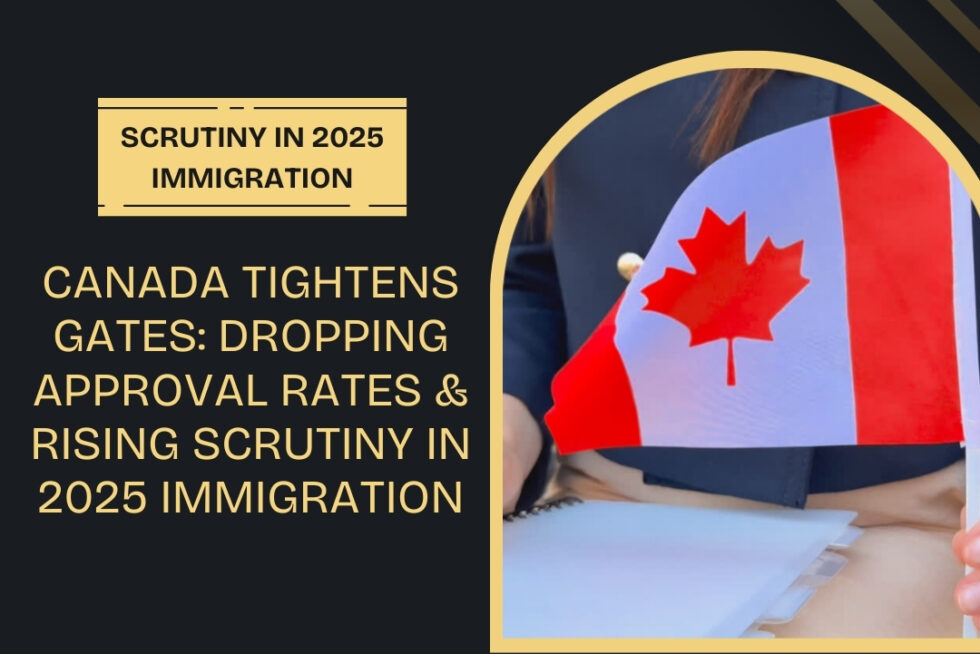Introduction
In 2025, applicants are finding it harder to get student and work visas in Canada. Recent data shows student visa approval rates at just 43%, and work permit approvals down to 69% — significantly tighter than previous years.
These changes reflect new government priorities: reducing temporary resident population (students + workers) to 5% of all residents by end-2026; increasing scrutiny of document quality; tightening eligibility; and enforcing employer compliance more strictly.
If you’re applying, renewing, or planning to apply soon, understanding the new landscape is key. AshLaw breaks down what’s changing, why, and how you can best prepare.
Table of Contents
- What Data Tells Us Now
- Key Policy Shifts & Enforcement Changes
- Effects on Students, Temporary Workers & Employers
- Mistakes Applicants Are Making Under the New Rules
- How to Strengthen Your Application in 2025
- AshLaw’s Support Strategy
- FAQ
- What Data Tells Us Now
- Student visa approval rates dropped to ≈ 43% in recent months.
- Work permits approval rates are now around 69%.
- IRCC’s 2025–2027 Immigration Levels Plan includes targets to reduce temporary resident share to 5% of population by end-2026.
- Temporary resident numbers are set to decline: IRCC estimates a drop in the temporary resident population by ~445,901 in 2025, with similar numbers in 2026.
- Key Policy Shifts & Enforcement Changes
- Stricter eligibility verification: more checks on academic credentials, financial backing, language test admissibility.
- Employer compliance enforcement: tied work permits (especially under TFWP) have more oversight; abuses are being reported and penalties may increase.
- Quotas/caps on temporary residents & international students introduced in new Levels Plan.
- Policy focus on reducing pressure on housing, infrastructure, social services tied to large temporary population growth.
- Effects on Students, Temporary Workers & Employers
- Students from certain countries (e.g., India) face much higher rejection rates, making preparation and documentation more crucial.
- Some work permit applicants are being more strictly assessed for employer IRCC compliance, job legitimacy, proof of resume/work history.
- Employers may face delays in getting necessary approvals or proving need for certain temporary workers.
- More pressure on applicants to demonstrate genuine intent, financial stability, ties to home country, and compliance history.
- Mistakes Applicants Are Making Under the New Rules
- Relying on weak or unverifiable documents (financial, educational)
- Not anticipating demand and rejections in certain national and regional streams
- Assuming same previous practices still work — criteria have tightened
- Underestimating the importance of translation, notarization, correct test score validity
- How to Strengthen Your Application in 2025
- Ensure ALL documents are legitimate, verifiable, translated if needed
- Use up-to-date financial evidence (bank statements, assets, support letters)
- Prepare strong statements/explanations for past history, intentions, ties to home country
- Consider legal counsel early, especially from someone familiar with recent policy shifts
- Keep an eye on processing times and intake caps; submit early
- AshLaw’s Support Strategy
- Pre-application document audit
- Mock eligibility assessments to detect weak points
- Assistance in gathering, translating, and organizing evidence
- Preparing strong explanation letters when necessary
- Advising on which pathway (student, work, sponsorship) minimizes risk under current rules
- FAQ
Q: Are approval rates going to improve soon?
A: Maybe. It depends on whether policy caps ease, temporary resident numbers stabilize, and whether IRCC processing capacity increases.
Q: What if my student visa is rejected?
A: Use GCMS notes to understand reasons, reapply with stronger proof (financial, academic), possibly use alternative pathways.
Q: Can I still apply for a work permit with the same credibility as before?
A: You’ll face more scrutiny; better to build more supporting evidence, ensure employer eligibility, frame your job clearly.
Facing visa rejection or worried about being denied?
Book your consultation today:
+1 (343) 401-9000

